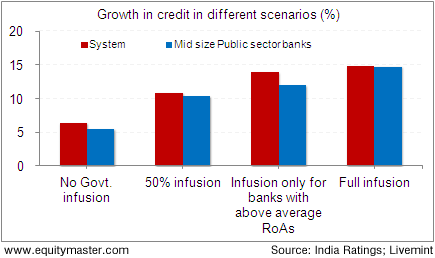Sensex Opens Marginally Lower; Infosys Down 2.5%
Asian equity markets are higher today as Chinese and Hong Kong shares show gains. The Shanghai Composite is up 0.20%, while the Hang Seng is up 0.05%. The Nikkei 225 is trading higher by 0.91%. US stocks closed with marginal gains on Thursday as Wall Street digested former FBI Director James Comey's testimony.
Meanwhile, share markets in India have opened the day marginally lower. The BSE Sensex is trading lower by 92 points while the NSE Nifty is trading lower by 23 points. The BSE Mid Cap Index opened the day down by 0.1%, while BSE Small Cap index opened the day flat.
Sectoral indices have opened the day on a mixed note with capital goods stocks and oil & gas stocks leading the gains. While, information technology stocks and healthcare stocks have opened the day in red. The rupee is trading at 64.36 to the US$.
Infosys (INFY) share price fell by 2.4% after it was reported that the company is exploring a sale of their entire 12.75% stake in the company worth about Rs 280 billion. The buzz of a stake sale comes amidst am uneasy truce between the Infosys board and founders in recent months
Oil & gas stocks opened the day on a mixed note with Gulf Oil Lubricants and Gujarat State Petronet leading the gainers. As per an article in a leading financial daily, state-run oil companies, Indian Oil Corporation (IOC) Ltd, Bharat Petroleum Corporation Ltd (BPCL) and Hindustan Petroleum Corporation Ltd (HPCL), will revise petrol and diesel prices every day in sync with international rates, beginning 16 June.
The policy of daily revision in prices is being rolled out after the successful implementation of the policy as a pilot in five cities across the country since 1 May 2017.
Presently, the oil marketing companies review and revise retail fuel prices after every fortnight on the basis of global crude oil prices.
Reportedly, daily revision in oil prices will make retail prices more reflective of the current market conditions, besides leading to increased transparency in the system.
Diesel and petrol prices move in tandem with the price of crude oil in most countries. However, even as prices have been falling rapidly, not all of this has been passed on to the Indian consumer. The government has been quick to repeatedly hike excise taxes on petroleum products. Vivek Kaul wrote about how lower oil prices were of huge benefit to the government in his Diary recently. Here's Vivek:
- "Interestingly, it even touched a low of $26.95 per barrel on February 12, earlier this year. This was a massive fall of 75%. The point being if this hadn't happened, the finances of the Modi government would have gone for a toss totally. The petroleum subsidy number fell from Rs 92,000 crore in 2013-2014, to a little over Rs 60,000 crore in 2014-2015, to around Rs 30,000 crore in 2015-2016. For 2016-2017, around Rs 27,000 crore has been budgeted for the petroleum subsidy."
However, for Indian consumers, a drop in global crude prices means lower fuel prices at the pumps. Apart from global crude prices, the value of the rupee against the dollar also determines the domestic cost of petrol and diesel at the fuel stations.
In another development, as per Global rating firm Moody's Investors Service, public sector banks (PSBs) in India, hit by stressed assets, will require external equity capital of up to Rs 950 billion in the next two years.
According to Moody's, gross non-performing assets (NPAs) for the industry, which stood at 9.5% at the end of the March quarter, are expected to increase to Rs 8.2-8.5 trillion or 9.9-10.3% by March 2018.
The banks will need nearly three to five times the capital promised by the government in its Budget. The agency has said that capital shortage will be a credit weakness for Indian public sector banks in light of the increasing requirements for equity under Basel III norms.
In this regard, Moody's said it estimated that the 11 banks - including State Bank of India, Bank of Baroda and Punjab National Bank will need external equity capital of 700 billion rupees to 950 billion rupees, over a two-year period ending March 2019, to fully meet Basel III capital rules.
In 2015, under the Indradhanush scheme, the government had said it would infuse Rs 700 billion in state-run banks over the next four years, while the banks would have to raise a further Rs 1.1 trillion from the markets to meet their capital requirement in line with global risk norms.
However, an important thing to consider is that the mid-level PSBs account for one-third of bank credit. And to meet the Basel III requirements is certainly going to be a big challenge at a time when credit is not cheap.
Capitalisation Of Mid-level PSBs A Worry

The chart above shows the likely credit growth under different scenarios of capital infusion. Certainly, a matter of worry not only for the banks but for credit-starved sectors of the economy as well!
Bank stocks opened the day on a negative note with Bank of India and Allahabad bank leading the losses.



